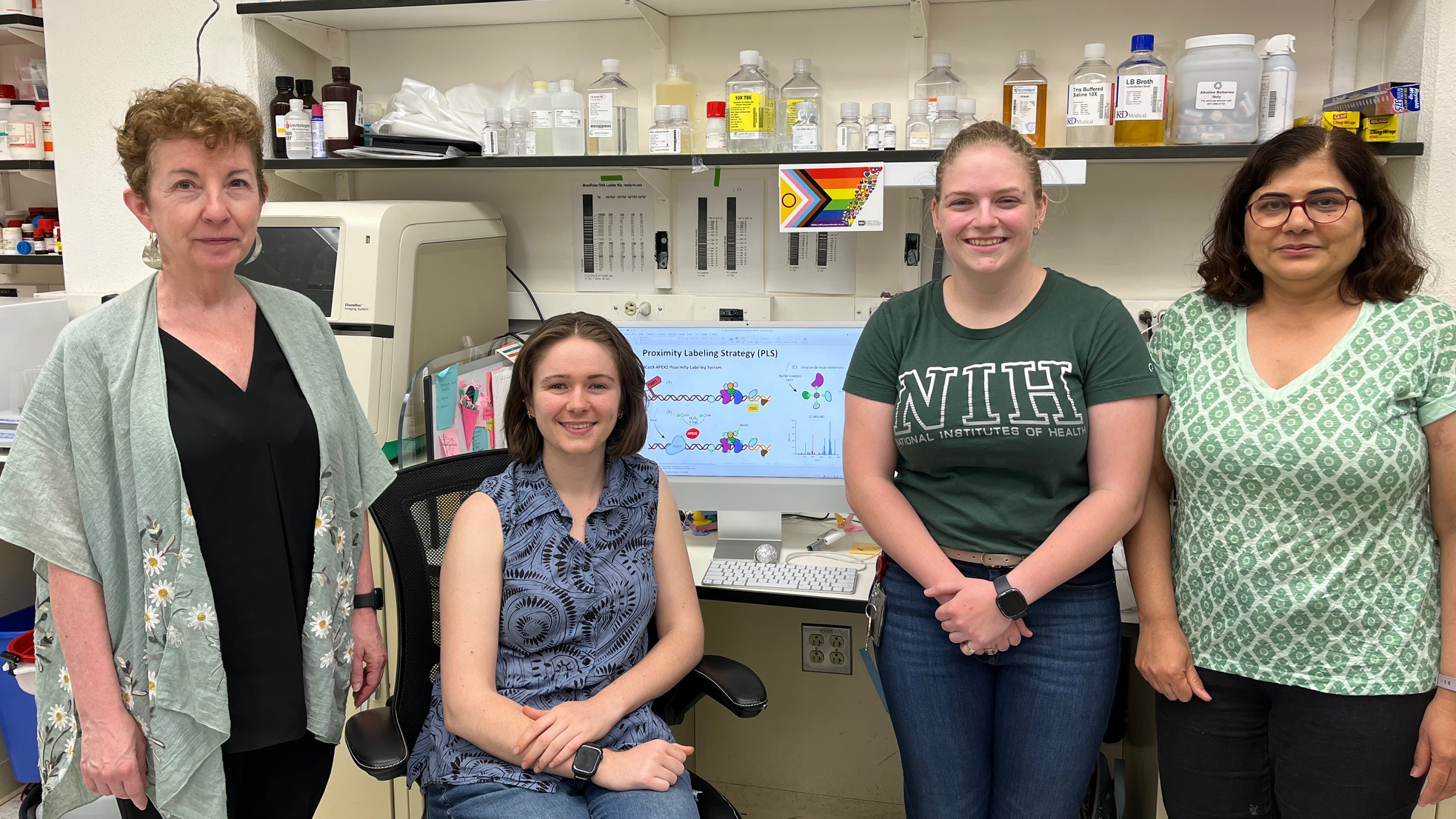Identification of the Proteome of Active and Silenced FMR1 Alleles in Human Stem Cells, Using An Unbiased Proximity Biotinylation Screen

Karen Usdin, PhD
Principal Investigator
Kathryn Ruppert
FRAXA Fellow
Daman Kumari, PhD
Mentor
National Institute of Diabetes and Digestive and Kidney Diseases (NIDDK)
Bethesda, MD
2024-2025 Grant Funding: $48,200
Summary
This team's ultimate goal is to find a way to restore full function of FMR1, the gene which underlies Fragile X syndrome. With this grant, they will use advanced technologies to find the specific proteins that are involved in keeping FMR1 silenced. Understanding precisely why and how the gene is silenced is a key step toward finding a solution.
The Science
by Kathryn Ruppert
Fragile X syndrome occurs because excess CGG-repeats cause the FMR1 gene to be switched off or silenced. We and others have identified some of the proteins involved in FMR1 gene silencing. However, exactly how and why repeat expansion causes gene silencing is still unknown. We think that gaining a better understanding of the silencing process will increase our chances of finding a viable strategy for gene reactivation.
To this end, we are carrying out an unbiased screen in patient cells using a new technique to tag proteins located close to the repeat in patient cells. This will allow us to then identify them using a very powerful and accurate technique called mass spectroscopy.
We hope this screen will advance our understanding of the proteins associated with FMR1 silencing and open new avenues for designing effective approaches for FMR1 gene reactivation.

